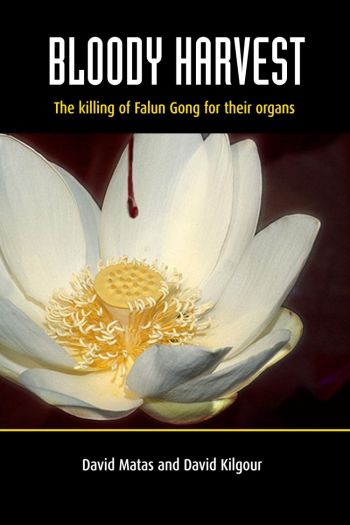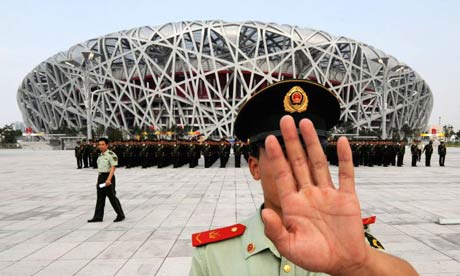The Writing on the Wall: China – Power, Corruption and Lies
Posted by Author on January 8, 2007
The Guardian, Monday January 8, 2007-
To the west, China is a waking economic giant, poised to dominate the world. But, argues Will Hutton in this extract from his new book, we have consistently exaggerated and misunderstood the threat – and the consequences could be grave.
( – Will Hutton’s The Writing on the Wall is published on January 18 at pounds 20. To pre-order a copy for pounds 18 with free uk p&p go to guardian.co.uk/bookshop or call 0870 836 0875 )
But the closer you get to what is happening on the ground in China, its so-called capitalism looks nothing like any form of capitalism the west has known and the transition from communism remains fundamentally problematic. The alpha and omega of China’s political economy is that the Communist party remains firmly in the driving seat not just of government, but of the economy – a control that goes into the very marrow of how ownership rights are conceived and business strategies devised. The western conception of the free exercise of property rights and business autonomy that goes with it, essential to any notion of capitalism, does not exist in China.
The truth is that China is not the socialist market economy the party describes, nor moving towards capitalism as the western consensus believes. Rather it is frozen in a structure that I describe as Leninist corporatism – and which is unstable, monumentally inefficient, dependent upon the expropriation of peasant savings on a grand scale, colossally unequal and ultimately unsustainable. It is Leninist in that the party still follows Lenin’s dictum of being the vanguard, monopoly political driver and controller of the economy and society. And it is corporatist because the framework for all economic activity in China is one of central management and coordination from which no economic actor, however humble, can opt out.
In this environment genuine wholesale privatisation is impossible and liberalisation has well-defined limits, as President Hu Jintao himself brutally reminds us. The party, he says, “takes a dominant role and coordinates all sectors. Party members and party organisations in government departments should be brought into full play so as to realise the party’s leadership over state affairs”. It may be true that party organisations in the provinces (some with populations bigger than Britain’s) and in the chief cities are jealous of their autonomous local political control, but all retain the discretionary power to do what they choose and override any challenge or complaint from any non-state actor – or, indeed, from state actors if they cross the will of the party.
Absolute power corrupts, and the Chinese Communist party has become one of the most corrupt organisations the world has ever witnessed. The combination of absolute power and an ideology that palpably no longer describes reality is a virus that is morally and psychologically undermining the regime. And if the regime wobbles, then its capacity to sustain the unsustainable economic structures will wobble and Leninist corporatism will unravel. Beijing’s authority could fragment and China’s provinces reassert their destructive independence as they did in the 1910s and 20s, or a new and fiercely repressive regime could try to hold the country together abandoning economic openness and market reforms – and even pick some international fights (such as invading Taiwan?) to rally the country to its side. It is because this prospect is so real that the task of peacefully moving to a sustainable capitalism, and building the necessary institutions to do it, is so vital for both China and the world. (… read more from The Guardian’s report about the book, The Writing on the Wall)
Rate this:
Share this:
- Click to email a link to a friend (Opens in new window)
- Click to share on Twitter (Opens in new window)
- Click to share on Facebook (Opens in new window)
- Click to share on Tumblr (Opens in new window)
- Click to share on Pinterest (Opens in new window)
- Click to share on Reddit (Opens in new window)
- Click to share on LinkedIn (Opens in new window)
- Click to print (Opens in new window)
Related
This entry was posted on January 8, 2007 at 1:31 am and is filed under books, China, Communist Party, corruption, Culture, Economy, Law, News, Official, Opinion, Politics, Report, Social, World. You can follow any responses to this entry through the RSS 2.0 feed. Both comments and pings are currently closed.
Sorry, the comment form is closed at this time.





